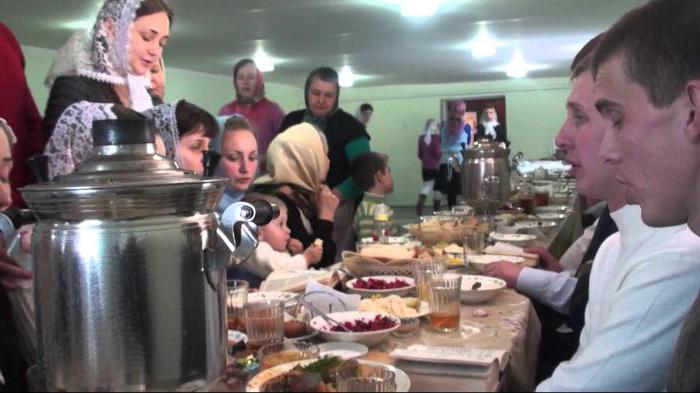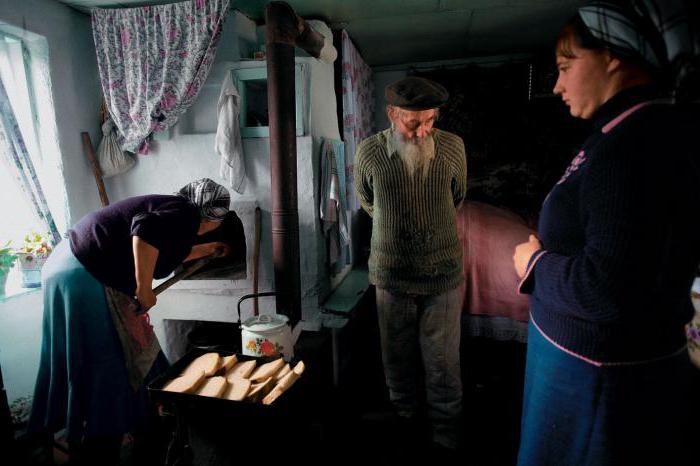Having heard how a certain group of people is called an unusual word, we will certainly want to know who the Molokans are and why they are called that. It seems that this word is somehow related to milk. And indeed it is. Although there are several versions about the origin of this name, but all of them are somehow related to this drink.
Dangerous sect
So who are Molokans? This is a group of people with common religious beliefs. Molokanism is one of the branches of spiritual Christianity. In the XVI century, people began to express dissatisfaction with the actions of the Orthodox Church. Although they continued to believe in God, traditional rites, icons, priests and even the Bible began to seem to them unnecessary mediators in communication with the Creator. Therefore, they began to unite in communities and live according to their own rules and laws. And by the XVII century, such people are becoming more and more. The authorities, concerned about this phenomenon, begin to fight it, that is, to expel those who have such beliefs, away from the central provinces. For this, the banks of the Milk River in the Tauride province were chosen.
Whatever you call it
Perhaps this location gave the name to the members of this community in the future. Although some researchers, explaining who Molokans are, said that they are people who do not observe church fasts and eat dairy products, in particular, drink milk even these days. Also, members of this community, being in the army or other places far from their villages, preferred to eat dairy products to be sure that they did not add pork or alcohol, which they have banned. However, there is an opinion that the name is connected with the phrase of the Apostle Peter from the First Synodal Epistle, which spoke of the great importance for a person of pure verbal milk. As such, Molokans perceive the Holy Scriptures, according to the covenants of which they try to live. The plant is also known - the Tatar molokan - but it is unlikely to be related to the name of the community, which is discussed in this article.
Go far away
However, the government did not stop at links to the Tauride province . 35 years after the Molokans settled in a new place, they again began to be evicted. This time to the territory of the Caucasus. This is how the Molokans turned out in Armenia. They had to settle high in the mountains, at an altitude of 2000 meters above sea level. The climate there was unfavorable for agriculture, however, this type of activity is now the main for the Molokans. Members of this community still live in this country. Interestingly, they do not mix with the local population and marry only among themselves. Of course, the number of Molokans over the years that have passed since they set foot on this land has decreased significantly. Now in Armenia only one village consists entirely of Molokans - Violetovo. Its population is about a thousand people. In the late 80s, there were about 50,000 Molokans in Armenia. The Molokans lived hard. Transcaucasia, however, became their home for many years. Perhaps the difficulties that they had to overcome, and helped these people to maintain their identity to the present day.

Spiritual Christians - Molokans
Sending representatives of this religious direction, the government was afraid of disobedience. After all, if the Molokans do not comply with church rules, then perhaps they will rebel against the authorities. Although, as it turned out, these are calm people who prefer to live apart. They have a spiritual leader - the presbyter. And although they do not have a single interpretation of the Holy Scriptures, all Molokans strive for spiritual development, study the word of God and try not to do anything wrong. Since ancient times, there were several groups: spiritual, evangelicals, maximists, old-timers and others. They differed in their interpretation and perception of the Bible. But all of them can be divided into two large groups. In one, religious teachings are interpreted literally, in the other - allegorically. Representatives of all groups coexist peacefully with each other and do not impose their worldview on anyone.
What are they like
Their denial of the official Orthodox Church unites them. Who are Molokans? These are those who honor the gospel, the prophets, but deny the worship of icons and prayers in the church. In their opinion, a person can communicate with God directly. Although in their settlements there are houses of worship where they gather, listen to sermons, sing psalms and perform some of their rites, such as christening and weddings. Church holidays celebrate selectively. For example, they celebrate Easter, but they do not recognize Christmas. Molokans do not carry crosses, do not worship the relics of saints. But they, like other Christians, believe that good works help the soul to be saved. Faith in God and service to him is the main path of their life.
Usual things
Molokans of Russia and other countries live by their own rules. Worldly life unites them as much as spiritual. They dress uniformly. Women must wear scarves and long skirts. Men don’t shave their beards and put on their shirts. The settlements strictly observe order and honor traditions. Alcohol is not consumed even on holidays. Do not celebrate birthdays. Anyway, they do not like entertainment. Even modest joys, such as reading books or watching TV, are prohibited for Molokans. However, they celebrate weddings widely, for several days. This is not surprising. After all, it is not customary for them to get divorced, which means that such a triumph happens to everyone only once in a lifetime.
Children go to secondary schools. Parents spend little time training siblings and do not scold for poor grades. After all, their children will not have to go to college, they will remain in the settlement and will be engaged in peasant labor. Of course, the desire for material well-being is not alien to the Molokans. Therefore, the male part of the population goes to work in the city, most often they are hired by brigades for repair work. Molokans also earn by selling various products made by their own hands. It happens that young people leave the community and leave in search of a better and interesting life.

Today, Molokan communities can be found all over the world. They are even in the USA, Mexico, Canada, Australia, Ukraine. But the Tatar molokan is not a member of the community that lives in Tatarstan, but just a weed plant. In Russia, the main location of Molokan communities is the Krasnodar and Stavropol Territories. For some representatives of these communities, the main thing these days is not religious beliefs, but unification and isolation in order to preserve Russian traditions and customs, as well as life according to the laws of their ancestors.